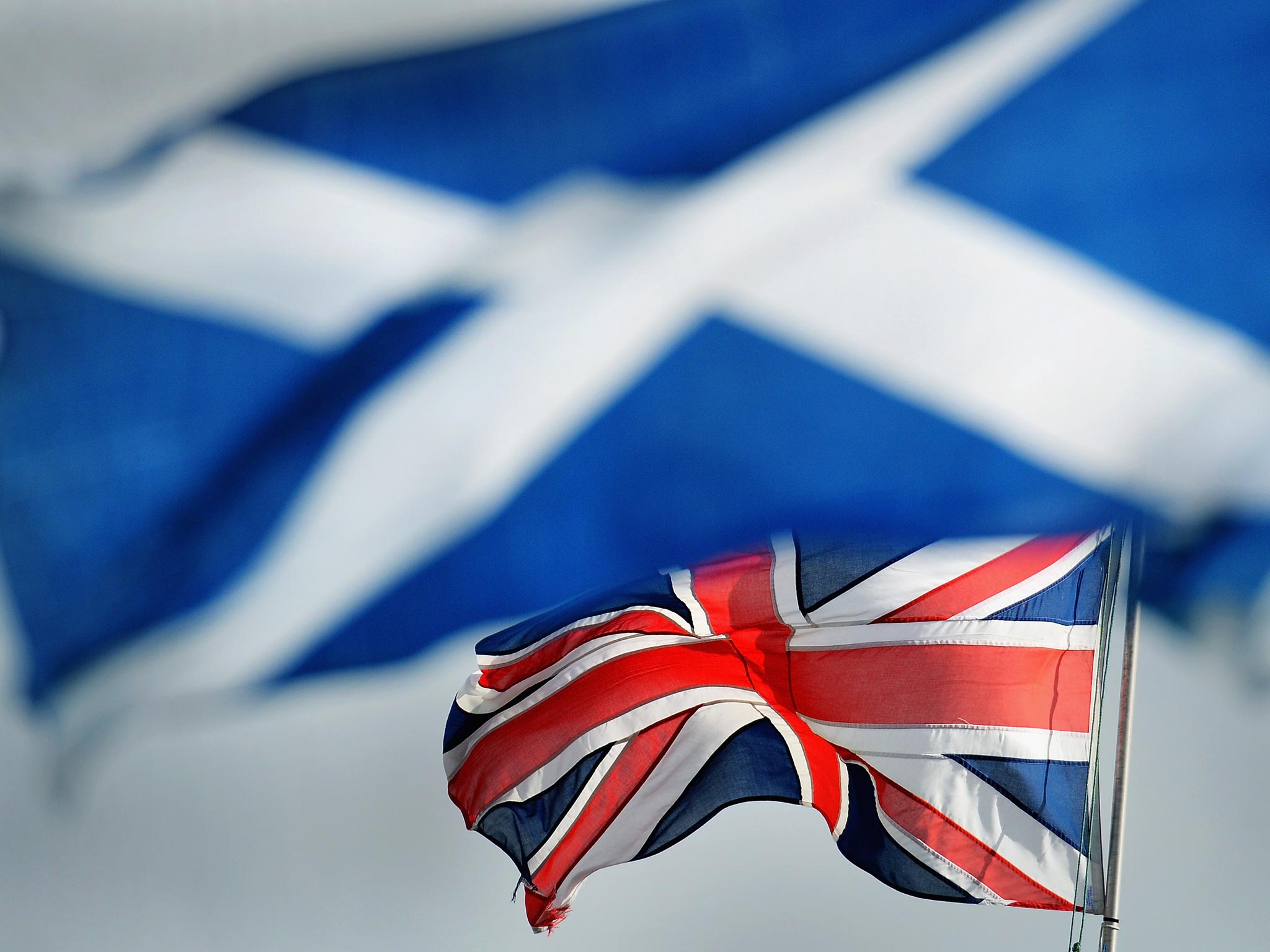Scotland referendum: Yes vote would not guarantee all of Alex Salmond’s independence plans

UK ministers could block full independence for Scotland if Alex Salmond makes “impossible demands” after a Yes vote in September’s referendum.
The Independent has learned that, even if Scots vote to break away from the UK, this would not guarantee that all the Scottish National Party's demands would be met.
One senior government source said: "A Yes vote in the referendum would be the start of a process, not the end of one. We would start negotiations. But if Alex Salmond made impossible demands, we would not just roll over and agree to everything he wanted. If we could not reach agreement, the status quo would be the default option."
The source added: "It would not be a question of defying the wishes of the Scottish people. As the UK Government, we would have a duty to represent the interests of the people of England, Wales and Northern Ireland." He described as "totally unrealistic" the Scottish Government's 18-month timetable for completing the negotiations.
He added: "The No camp is now apparently saying they could refuse to recognise a Yes result, which is breathtaking. It shows a worrying contempt for the process of democracy that is underway in Scotland. If people at Westminster were trying to drive people towards voting Yes, they could not be doing a better job than the sabre-rattling nonsense that has emerged from the anti-independence camp over the past 48 hours."
On Thursday the three main parties and the Treasury's top official united in an unusual declaration that an independent Scotland would not be able to keep the pound. The choreographed move put the SNP under pressure to come up with a Plan B for sterling.
Speaking in Edinburgh, George Osborne said there was "no legal reason" why the rest of the UK would want to share the pound with an independent Scotland. "If Scotland walks away from the UK, it walks away from the UK pound," he warned.
The Chancellor accused Mr Salmond of making "reckless threats" by saying an independent Scotland would not accept its fair share of national debt if the UK refuses to share the pound. "That's like saying, "Because my neighbour won't agree to my unreasonable demands, I am going to burn my house down in processes'," Mr Osborne said.
Shadow Chancellor Ed Balls said currency union was "not going to happen," and Danny Alexander, Liberal Democrat Chief Treasury Secretary, said it was "crystal clear" such a union would "create unacceptable risks both for Scotland and the rest of the UK".
Sir Nicholas Macpherson, permanent secretary at the Treasury, told the Chancellor: "There is no evidence that adequate proposals or policy changes to enable the formation of a currency union could be devised, agreed and implemented by both governments in the foreseeable future."
He added: "You can expect the Scottish Government to threaten not to take on its share of the UK's debt. I do not believe this is a credible threat."
Where the UK Government could block full independence
Pensions
The Scottish Government has promised that, from 2016 new pensioners will get a single tier state pension of £160 a week, £1.10 more than those in the rest of the UK. But the UK Government insists there are "major unresolved issues" on cross-border private schemes, who regulates and protects pensions, and where responsibility for state and public sector pensions lies.
Energy
Pro-Union politicians claim a third of the UK's subsidies for renewable energy goes to Scotland, while Scots foot only a tenth of the bill. They doubt that the rest of the UK would want that to continue. But the Scottish Government proposes a single GB-wide energy market to keep prices stable and energy supplies secure.
Trident
The SNP has promised to remove Britain's nuclear deterrent from its base at Faslane on the Clyde. UK ministers fear this could make the cost of renewing Trident, already £25 billion, unaffordable. They hope Alex Salmond would use Trident as a bargaining chip, possibly in return for the UK Government's support for Scotland joining the EU and Nato.
Join our commenting forum
Join thought-provoking conversations, follow other Independent readers and see their replies
Comments
Bookmark popover
Removed from bookmarks